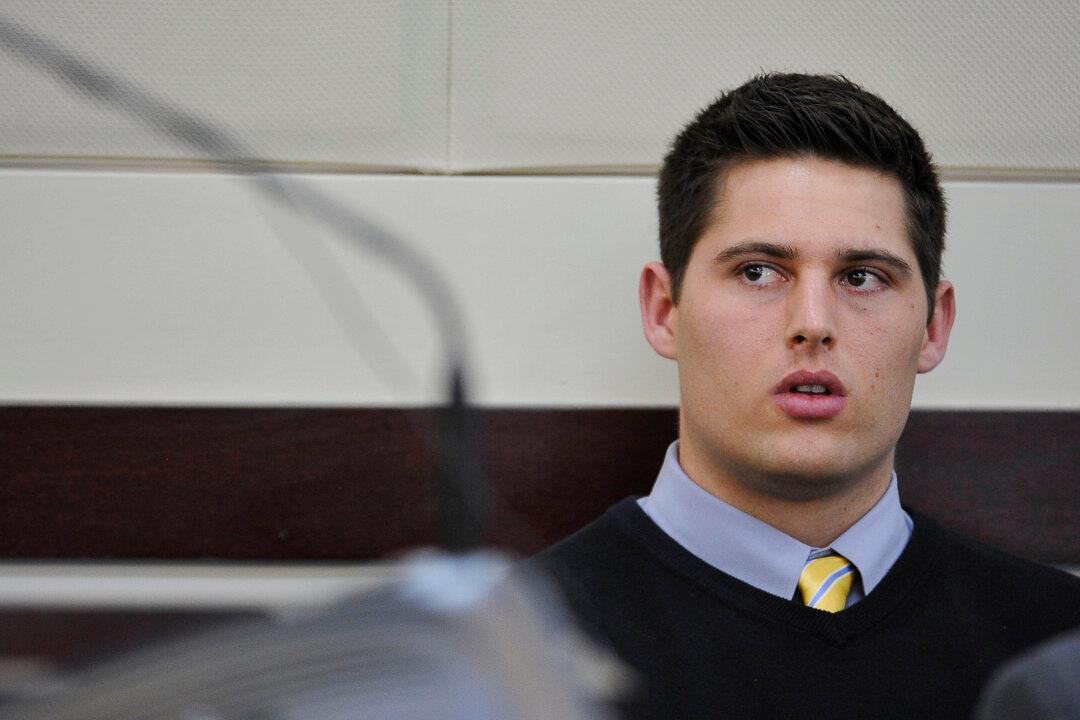On Tuesday former Vanderbilt football players Brandon Vandenburg and Cory Batey were convicted of four counts of aggravated rape and two counts of aggravated sexual battery against a fellow student and face decades behind bars.
Even as first-time offenders, they could spend the prime of their athletic lives in a Tennessee prison.
They had been potential Southeastern Conference football stars. Vandenburg’s father broke down and wept as the verdict was read.
Vandenburg was the victim’s boyfriend, who egged three of his friends on in their sick conquest and repeated violation of the victim, according to video evidence presented at the trial. He passed out condoms. He filmed the assault. The group’s behavior seemed intended to degrade the victim as much as possible.
The boys were drunk or high at the time of the crime, and this was part of their defense. Batey’s attorney suggested his client was a good kid who arrived on scholarship and was corrupted by the campus culture.
Passersby in the college housing building had seen the victim naked in a hallway, and surveillance video reviewed by the college authorities proved the same. One of the shocking parts of the Vanderbilt case was that no one intervened, and afterwards, participants and their friends tried to cover it up.
Prior to the trial, a Vanderbilt investigation had found that there was not enough proof that the sex was not consensual. It was a typical response for college administrators nationwide, one that has raised serious questions about the ability of administrators to adequately respond to rape and sexual assault complaints.
The federal government is investigating Vanderbilt and 49 other universities for mishandling sexual assault cases.
The jury who heard the case roundly rejected that the boys were too drunk to know what they were doing, and blamed the college culture of binge drinking and promiscuous sex for the attack.





